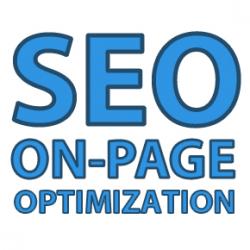
On Page SEO takes up a couple different forms, but it mostly refers to the ability to create a consistent source of relevant content on your site and making it easily accessible to search engines like Google, Bing or Yahoo. Deciding how to effectively market a website or blog can sometimes be a daunting task, and many people won’t know where to start. The first order of business for most seasoned marketing professionals is optimizing the “On Page” content of the site.
There are a few basic tips and tricks when it comes to this form of optimization, and we will cover those in this post.
Optimizing Your Keywords
It is important to not only associate the keywords that are relevant to your content, but also you will need to ensure your keywords are optimized. What does that mean? Traditionally, marketers thought it was best to spam their websites with the overuse of the keywords they were trying to optimize. It didn’t take long for Google’s spiders to pick up on this method and start penalizing spam sites. Still, you want to let Google and your other visitors know what your site is about.
On-Page SEO Keyword Placement
Where you decide to place your keywords is almost as important as the type of words you choose to use. The obvious place is spreading it throughout your article or blog post, but you also want to make use of your heading tags. You should try to incorporate your keywords in as many headings as possible (H1-H6).
Create SEO-Friendly URLs
Another good practice is creating SEO friendly URLs to help with ranking your pages. Before anyone goes to your page through a search engine, your URLs are checked for relevancy to the keywords listed. If you use the phrases you are wanting to rank for in the URL, then chances are you will rank much higher than your competitors.
Using Meta Tags
A necessary step in maximizing your on page SEO efforts, is utilizing your meta tag descriptions. For the most part, meta tags are summaries. These summaries tell users and search engines like Google what the content pertains to, and if it is relevant for what you search for. You would be surprised how many people don’t use this very helpful tool in ranking their pages.
How to Create an Effective Meta Tag
When you are creating your meta tag, you will want to keep your descriptions 160 characters or less. This will give you enough space to write a good summary that will inform the readers and the engines what your about to talk about. There may be other times when your meta tags or descriptions won’t be visible to the readers, but you should still always create them. This is usually the first or second stop for search engine spiders.
On-Page SEO Analysis
Sometimes the only real way to tell if your on page SEO efforts are working is to leap before you walk. What do I mean by that? With the ever changing algorithms that Google uses, eventually you have to just sit and wait to see if your efforts are working. Analyzing your SEO is a great way to see if you are on the right track. Just because you posted something a month ago, doesn’t mean you can’t continue optimizing the content until you achieve the rankings you desire. Depending on the type of keywords or phrases you are trying to rank for, you could be on page 1 within a couple of weeks, months or sometimes even years. Remember, the internet has been around a while and you have to prove your worth.
Check Content Length
How much content is too much or too little? It really depends on the subject matter, but overall you want to keep your content informative and brief at the same time. Remember, most people have short attention spans so you want your content to drive the point without leading to people getting bored and leaving your site.
Have Appropriate Keyword Density
Keyword density relates closely to the length of your content. The density is calculated by the percentage your keywords or phrases are used throughout your article or post. The longer the article, the more times you should be referencing your target words. This is something you will have to monitor, as it isn’t an exact science. Sometimes short and sweet is the better way to go.
Efficient Use Of Hyperlinks
You are the master of your own domain, literally. You have the ability to link and unlink any pages or URLs throughout your site. Use this to your advantage and set up an internal linking plugin so that relevant keywords throughout your site automatically link back to the URL you are trying to rank for. Google loves when you optimize the navigation on your site. This makes for a good experience when someone visits your site, and it makes it easy for viewers to find what they are looking for.
On page SEO is not by any means the only effort you should make when it comes to ranking your pages. There are several other techniques that can be used. In our next post, I am going to explain the importance of “Off Page SEO”, and how it can affect your rank.
Author: Josh Nadeau
Courtesy of www.genuineseo.net